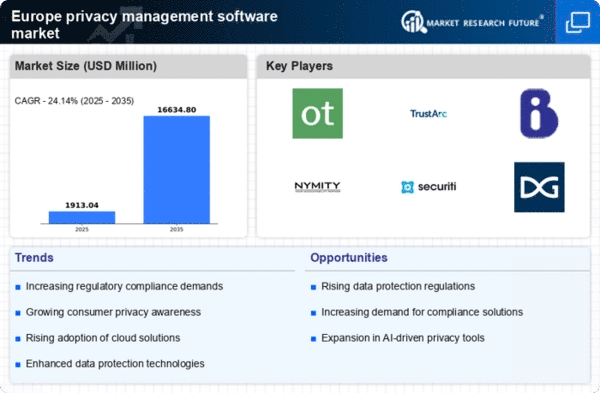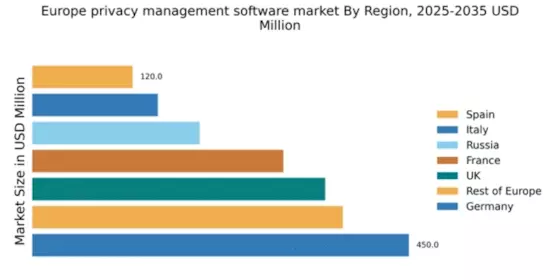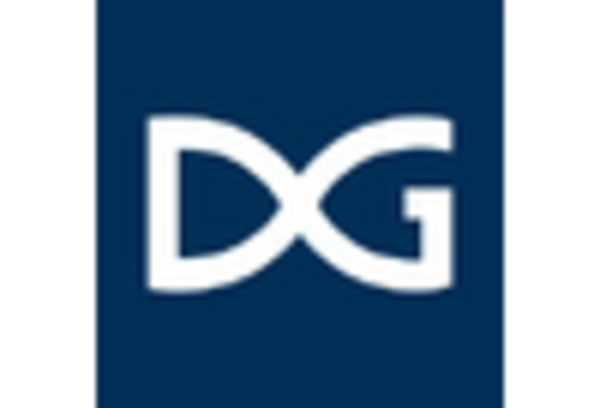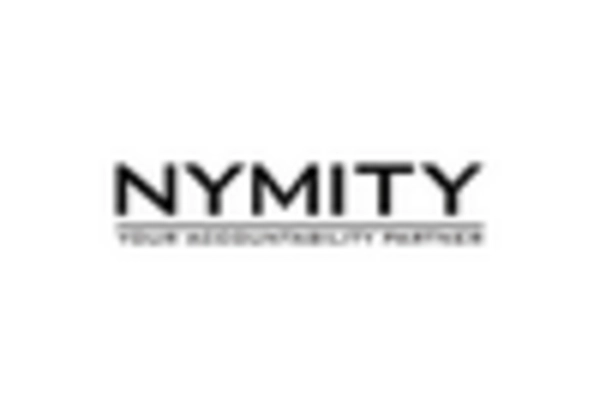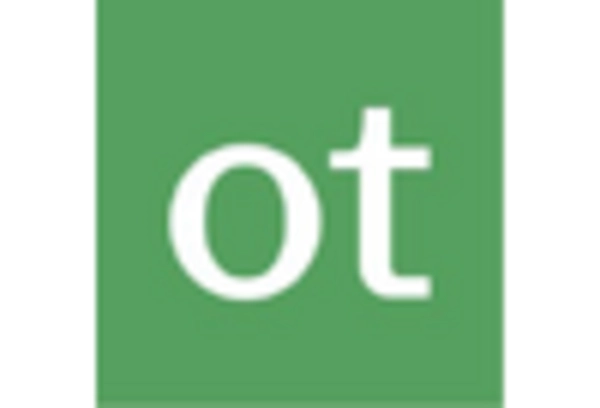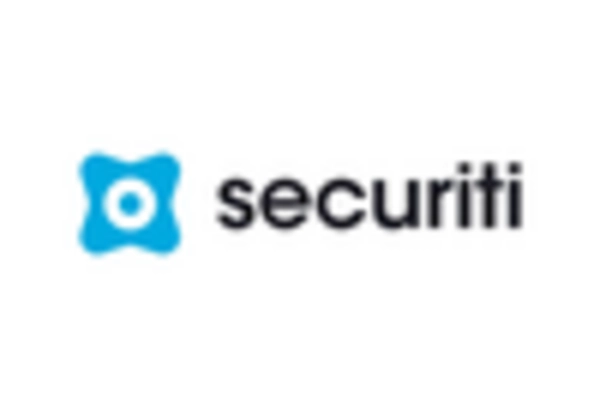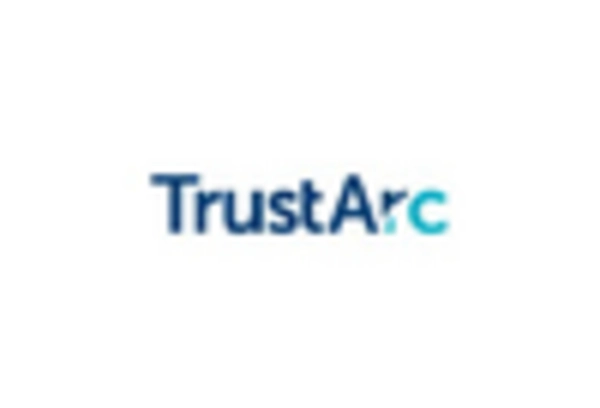Data Breach Incidents
The increasing frequency of data breach incidents across Europe has heightened the urgency for organizations to implement effective privacy management-software solutions. High-profile breaches have exposed millions of personal records, leading to significant financial losses and reputational damage. According to recent statistics, the average cost of a data breach in Europe is approximately €3.5 million, which underscores the financial implications of inadequate privacy measures. As a result, businesses are increasingly recognizing the necessity of investing in privacy management software to enhance their data protection strategies. This trend is further amplified by the growing public concern over data privacy, prompting organizations to prioritize the safeguarding of personal information. Consequently, The privacy management software market is likely to expand. Companies seek to bolster their defenses against potential breaches and comply with stringent regulatory requirements.
Technological Integration
The integration of advanced technologies into privacy management is a key driver of market growth in Europe. Innovations such as artificial intelligence (AI) and machine learning (ML) are being increasingly utilized to enhance data protection capabilities. These technologies enable organizations to automate compliance processes, conduct risk assessments, and monitor data usage in real-time. As businesses strive to streamline their operations while ensuring compliance with privacy regulations, the demand for sophisticated privacy management solutions is on the rise. The market is projected to witness a surge in the adoption of AI-driven privacy management tools, which can potentially reduce compliance costs by up to 30%. This technological evolution not only improves efficiency but also empowers organizations to respond proactively to emerging privacy challenges, thereby fostering a more secure data environment.
Cross-Border Data Transfers
The complexities surrounding cross-border data transfers significantly impact the privacy management-software market in Europe. With the increasing globalization of business operations, organizations often face challenges in ensuring compliance with varying data protection regulations across jurisdictions. The invalidation of the Privacy Shield framework has further complicated these transfers, necessitating the implementation of robust privacy management solutions to navigate the legal landscape. Companies must ensure that their data handling practices align with both EU regulations and those of the countries to which they transfer data. This need for compliance creates a substantial market opportunity for privacy management software that can facilitate secure and compliant data transfers. As organizations seek to mitigate risks associated with cross-border data flows, the demand for specialized privacy management solutions is expected to rise, potentially leading to a market expansion of over 20% in the coming years.
Regulatory Landscape Evolution
The evolving regulatory landscape in Europe significantly influences the privacy management-software market. With the implementation of the General Data Protection Regulation (GDPR), organizations are compelled to adopt robust privacy management solutions to ensure compliance. The GDPR imposes strict penalties for non-compliance, which can reach up to €20 million or 4% of annual global turnover, whichever is higher. This regulatory pressure drives businesses to invest in privacy management software to mitigate risks and avoid hefty fines. Furthermore, the European Data Protection Board (EDPB) continues to issue guidelines that necessitate ongoing updates to privacy practices, thereby creating a sustained demand for innovative software solutions. As organizations strive to align with these regulations, the privacy management-software market is expected to experience substantial growth, with an estimated CAGR of 15% over the next five years.
Consumer Demand for Transparency
Consumer demand for transparency regarding data usage is increasingly shaping the privacy management-software market in Europe. As individuals become more aware of their rights under GDPR, they are actively seeking clarity on how their personal information is collected, stored, and utilized. This shift in consumer expectations compels organizations to adopt privacy management solutions that facilitate transparent data practices. Companies that prioritize transparency are likely to enhance customer trust and loyalty, which can translate into competitive advantages. Research indicates that 70% of consumers are more likely to engage with brands that demonstrate a commitment to data privacy. Consequently, businesses are investing in privacy management software to not only comply with regulations but also to meet the growing demand for ethical data handling practices, thereby driving market growth.


